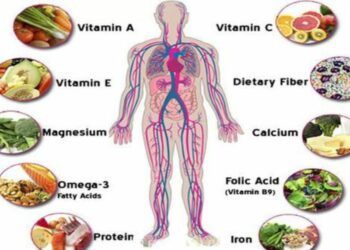
Introduction
Vitamin B12, also known as cobalamin, is a water-soluble vitamin essential for various bodily functions. It plays a crucial role in maintaining nerve health, DNA synthesis, and the production of red blood cells. Unfortunately, many people are unaware of the risks associated with vitamin B12 deficiency until they experience symptoms.
What is Vitamin B12?
Vitamin B12 is primarily found in animal-based foods such as meat, dairy products, and eggs. It is an essential nutrient that our bodies cannot produce independently. Therefore, it is imperative to obtain an adequate amount of vitamin B12 through our diet or supplements.
Causes of Vitamin B12 Deficiency
Several factors can contribute to vitamin B12 deficiency, including poor dietary choices, certain medical conditions, and medication usage. Chronic conditions like pernicious anemia and gastrointestinal disorders can hinder the absorption of this vital nutrient.
Symptoms and Health Implications
Vitamin B12 deficiency can manifest in various ways, ranging from fatigue and weakness to neurological symptoms like numbness and tingling. If left untreated, it can lead to serious health issues, including anemia, nerve damage, and cognitive impairments.
The Importance of Early Detection
Early detection of vitamin B12 deficiency is crucial for effective intervention. Nutrition counseling can help identify deficiency symptoms and underlying causes, enabling individuals to take proactive measures.
Nutrition Counseling: A Comprehensive Approach
Nutrition counseling is a holistic approach to addressing vitamin B12 deficiency. Registered dietitians and nutritionists play a vital role in educating individuals about the importance of a well-balanced diet and its impact on overall health.
Customizing Diet Plans
One of the primary goals of nutrition counseling is to create personalized diet plans tailored to an individual’s specific needs. This ensures that they receive an adequate amount of vitamin B12 through food sources.
Supplements and Their Role
In some cases, dietary modifications alone may not suffice. Supplements like vitamin B12 injections or oral supplements may be recommended by healthcare professionals to address severe deficiencies.
Lifestyle Modifications
Apart from dietary changes, lifestyle modifications can also contribute to the prevention of vitamin B12 deficiency. Managing stress, adopting a regular exercise routine, and getting sufficient sleep can aid in better absorption of nutrients.
Vitamin B12-Rich Foods
Nutrition counseling emphasizes the inclusion of vitamin B12-rich foods in one’s diet. This includes lean meats, fish, dairy products, fortified cereals, and nutritional yeast.
Case Studies: Success Stories
Real-life examples of individuals who have successfully overcome vitamin B12 deficiency through nutrition counseling can serve as inspiring testimonials, encouraging others to seek professional guidance.
Preventing Vitamin B12 Deficiency
Prevention is always better than cure. Nutrition counseling helps individuals make informed choices, reducing the risk of developing a deficiency in the first place.
Professional Guidance Matters
Seeking professional guidance through nutrition counseling is essential, especially for those at risk or already experiencing symptoms of vitamin B12 deficiency. It ensures that the advice received is tailored to individual needs and circumstances.
Conclusion
In conclusion, vitamin B12 deficiency is a common but often overlooked health issue that can have serious consequences. Nutrition counseling emerges as a pivotal tool in preventing and managing this deficiency effectively. By customizing diet plans, recommending supplements when necessary, and promoting overall wellness, nutritionists and dietitians play a vital role in improving the health and well-being of individuals.
Frequently Asked Questions (FAQs)
- Is vitamin B12 deficiency common?
- Yes, it is more common than people realize, affecting millions worldwide.
- Can a vegan diet lead to vitamin B12 deficiency?
- Yes, since vitamin B12 is primarily found in animal products, vegans should consider supplementation or fortified foods.
- How long does it take to see improvements with nutrition counseling for vitamin B12 deficiency?
- The timeline varies depending on the individual’s severity of deficiency and adherence to recommendations. It can range from weeks to months.
- Are vitamin B12 supplements safe to take without professional guidance?
- While over-the-counter supplements are generally safe, it’s advisable to consult a healthcare professional for personalized guidance.
- What are some natural sources of vitamin B12 for vegetarians?
- Vegetarians can obtain vitamin B12 from dairy products, eggs, fortified cereals, and nutritional yeast.







